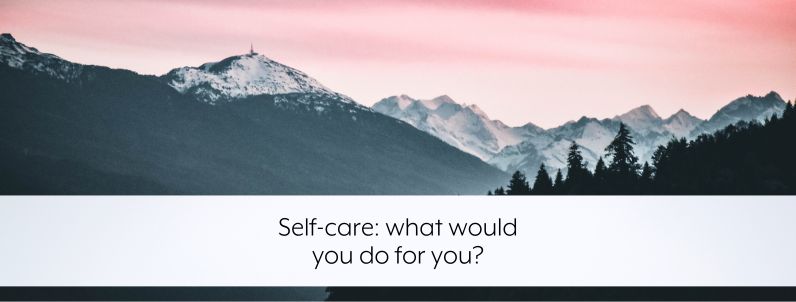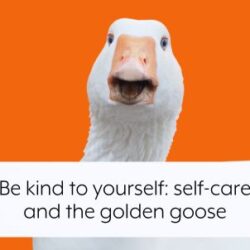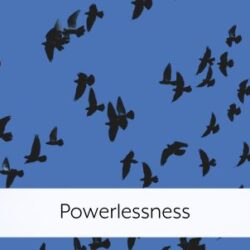
Twice at the weekend on training days I was asked how I ‘self-care’. It comes up a lot, which shows what a big issue it is for people.
I could come up with a list of ‘self-care activities’, things that work for me, but I think we need to take a step back and just acknowledge first how hard self-care is.
And of course it is. It is entirely counter-intuitive. When we were abused, we made sense of the malevolent actions of others towards us by assuming that we’re getting just what we deserve. I am bad – that is why I am being treated badly. The child’s mind can’t see outside itself to consider an alternative.
To me as an abused child it is obvious that I am bad. I am being hurt because I am bad. And I am bad because I hurt. It’s a never-ending cycle of self-evident obviousness.
Then in adulthood, there’s that moment – singular and dramatic for some, a series of steps down a moving elevator for others – where we decide we want to be free of this badness. We may have tried drowning it out with food or drugs or booze or sex or work or stuff or people, but it’s refused to budge. And light dawns on us, and we grasp it for the first time that we need some major healing work to take place, not just sign up for another diet or course or church or job or hobby or relationship or child. There’s something on the inside of us that needs fixing.
I reached that moment and eventually found help in the form of therapy. For the first time I began to see my unseen beliefs like crystals forming around me. It had never occurred to me before that I believed that I was bad; I just was. Was there even an alternative? It had never occurred to me before that I believed that I was unloveable; I just was. I didn’t know that it was a belief. I thought it was just true. It hadn’t occurred to me that I might believe things that weren’t true. I assumed truth was what I believed it to be.
So here then are my beliefs, made conscious and given substance and form around me, and I wonder for the first time: am I really bad? Or is it possible that I’m not?
And so went the merry-go-round for a good few years. I can’t not be bad, because I’ve always been bad, and that’s why I was abused. Oh, hang on, maybe I’m not bad, and maybe it was wrong that I was abused – but wait a minute, what would that mean? Who abused me? And does that make them bad? No, no, stop right there, they can’t be bad, because everyone has always said that they’re good (including them), and they’ve always said that I’m bad, so I must be bad …
It’s a painful place to be stuck in this kind of thinking, where you desperately want to change what you think but you just keep resetting to default.
And for a long time, I argued against self-care because it was wrong, counter-intuitive, weird. Why would you care for something that is bad?! No, no, it’s not right. Self-care is out. I can make myself good by caring for others. Self-care just shows I’m selfish, right?
And so I’d go around the merry-go-round on that one too.
Until … Have you ever heard that Einstein quote? The one that says, ‘If you always do what you’ve always done, you’ll always get what you’ve always got’? Some people think it was Henry Ford that said it, or Mark Twain, or Big Bird. Whoever said it, they were right. I kept on getting the same results from my lack of self-care, which reinforced my badness, which justified my lack of self-care.
I eventually realised that the only people winning from that equation were the people who abused me.
And by this point I couldn’t take the pain any more – the pain of having been abused. You surface that stuff, and you don’t remember it one event at a time, with a beginning, a middle, and an end. You relive how it felt. And it hurt. Badly. So badly that most of the time, during that phase of therapy and life, I wanted to kill myself.
So if you always do what you’ve always done … I had been waiting for something magical to happen. I’d been waiting for something outside of myself to force some different kind of truth into my head, to take the pain of abuse – including self-abuse – away. And this ‘something else’ (whoever or whatever it was) was failing to play ball.
Dammit.
I can’t remember when it was that I decided to change. No doubt I went through various rotations of the merry-go-round, trying one more time to see if self-hate would make me feel any better. But eventually I just started doing the ‘different thing’ to get the different result. I started to self-care.
It wasn’t hot baths and candles and foot massages and nail salons … Not really me, those things. It was just a small step forwards into something that had been a resource during childhood. It was something that most people wouldn’t even think of as ‘self-care’.
But it had been a resource for me as a child. Because whatever was happening, however awful the abuse, however intolerable it was to be alive and aware and to think and to feel, there was always an escape. I was 5, 6, 7, 8 years old. And off I’d go onto the moor at the back of our houses, with my best mates the twins, and two jumpers for a goal and away we went. Playing for hours. Sometimes just the three of us, sometimes with others. We could be anyone. I was Bryan Robson, Captain Marvel, who always came back from injury and adversity, always gave his all, always wore his heart on his sleeve. It was magical. Football was my escape and my salvation.
I had to stop playing when I was 21, at University, when I suffered a back injury, but I still loved watching. And yet, through those breakdown years, with little or no money, Sky Sports didn’t make it anywhere near our list of household priorities.
Until eventually I was asked the question about self-care in a way that I could understand it: ‘What would you do for you, if you could do anything?’ And out it came in a flash, all this pent-up longing: ‘I’d have Sky Sports so I could watch Man United.’
It sounds daft. It doesn’t sound like a momentous step forwards in my healing. But, looking back, it was, because for the first time I was able to articulate what I really wanted, what I wanted for me – not for anyone else. And it was something that had always been a resource for me, but just a neglected one.
I still had to get over the doubts: ‘I’m being selfish’, ‘I don’t deserve this’, ‘It costs too much’, ‘I don’t have the time’. But it was the first step towards recognising the ‘I’ that exists at the core of me, who that person is, what that person wants and needs, and how to resource her.
Who’d have thought that watching football would be the start of a great journey of recovery? Who’d have thought that self-care could be so simple, so obvious?
What does self-care mean to you? And what would you do for you, if you could do anything?



9 Comments
Thank you for this post. I think (hope) I am right at this point now. Instead of waiting until I am ‘better’ to start looking after myself I’ve accepted that I will have to start looking after myself in order to get better.
That is so powerful. Thanks for sharing…the idea that it can’t wait until we are better…wow!!
Self care is making time to get to the sea shore. I go to the sea. I used to as a child, escape to the shore, mess around in rock pools.
I need to live close to the shore. I love the walk on a windy day, salty water spray in the air, roaring crashing waves and fewer people. My safe space, when I cannot get to the shore, is the memory of the isle of Staffa. I have spent any a happy hr there in 1999, alone thanks to Davie trusting me to be safe & me trusting he would come back in the afternoon to collect me in his boat.
You’ve just managed to explain to me what my therapist has been trying to get across for 2years.
Thank you
There isn’t anything in the universe that can explain abuse to a child’s mind. (It’s a pretty tough topic for an adult to process.)
I didn’t recall my abuse until a year ago. I didn’t know that I had DID until two years ago. And only now am I understanding that this me, who always tries to keep going and making things work, has been rockily operating by ignoring big swaths of time and experience.
Only now am I starting to realize that I don’t like myself; I hold myself accountable for everything that goes wrong that is connected to me in any way. Only now am I realizing that I live fearing “getting in trouble”; I live feeling embarrassed and ashamed.
Self-care strikes me as the opposite of self-loathing or blaming oneself. And I’m happy to see that you describe an activity that seems to delight you—football. This makes me wonder if I can find anything that delights me. As a child I enjoyed building forts under the trees and exploring. Maybe there is a kernel in that. I shall keep looking.
Thank you for sharing your insight. It is kindly appreciated.
Self care to me means not seeing certain people. Means valuing my fears and how it has protected me. Self care for me is listening to my physical pain and what it’s trying to tell me, without panicking. It’s lots of little things. It’s doing what I do not want to do, sometimes. It’s thinking what would that inner 10 year old want to be consoled with and I go and do just that. It might be a walk…window shopping or ice cream. It’s all about the intention, as I do it, I visualise taking her along with me…..lots of small neutral experiences or encounters, to create a NEW reference point. It’s the repetition. Repetition & repetition again. Uding the same ammunition of abuse (reletition) to my own advantage. By repeating lots of the opposite. Sometimes self care isn’t just bubble baths but accepting that this is how I feel today…to reassure myself that it won’t last forever. Sometimes it’s about encouraging myself to step out of a comfort zone and sometimes ots about allowing myself to not push myself. Making room and giving permission for trial and error is really powerful. Sometimes it’s going to be a yoga class, sometimes breathing (ocean breath) and sometimes it’s time-bounding the crying and then letting adult me come in to take over. And sometimes no matter how hard you try there’s no relief . And on those days, the biggest Self care is to try less. To let it be. To pendulate and tap in and out of the pain whilst pendulating to an area of the body that dies feel okay. And Sometimes, nothing helps. And knowing it’s just a reflection of where you are AT, rather than a definition of who you ARE.
Thanks for sharing.
I had dissociative amnesia almost 10years after the most traumatic event happened. But the occurences of abuse/neglect and traumatic events were so regular that I automatically found myself into what ppl call “escapism” from age 8 to 17 when meditation helped to dig into what my brain stored until I had the most horrific flashback. Before then I would continuously and constantly be obsessed with questioning and knowing the truth about everything since Trust was already out of the picture.
Not knowing anything about mental health and dissociative disorders I explained to myself what I was living with the only sciences I knew at the time (philosophy, biology, psychology). For everyone I was just the quiet likeable prodigy kid with a something different.
When the first flashback happened, plenty followed as well as major health issue and I decided to take care of myself as noone else did it. That Self-Care has always (still now in my mid 20) been labelled as “being lavish, precious, selfish, materialistic, princessy” while all I’ve ever done was to set my environment and experiences as soothing and positively stimulating.
Growing up with an imposture syndrome (something my abusers put into my head) it’s been a long disheartening journey.
All my coping mechanisms aside dissociating were intellectual activities like learning tons, physical activities, owning/creating/contemplating art and going for the quiet non-triggering experiences.
Unfortunately at my age it’s labelled not so positively, becoming either intimidating to people of my age or unrelatable due to not having shared same normal experiences.
I’ve noticed whenever I choose an easier way to cope (like excessive work, excessive socialisation even though I’m an introvert, excessive motion…) it all falls apart quickly. While only taking a day to slow down, rest, take care of my body and my mind does wonders.
Self-care is a hard process to find, a harder one to keep up with, and most importantly a real issue in nowadays social setting where people aren’t sensible enough to understand one another.
“I am bad because I hurt”
that spoke straight to the heart – not the head where a lifetime of defences, resistance and pain stop words reaching the soul. Today I am! that is enough.
My self care listening to classical music while everyone sleeps. It touches the soul too.